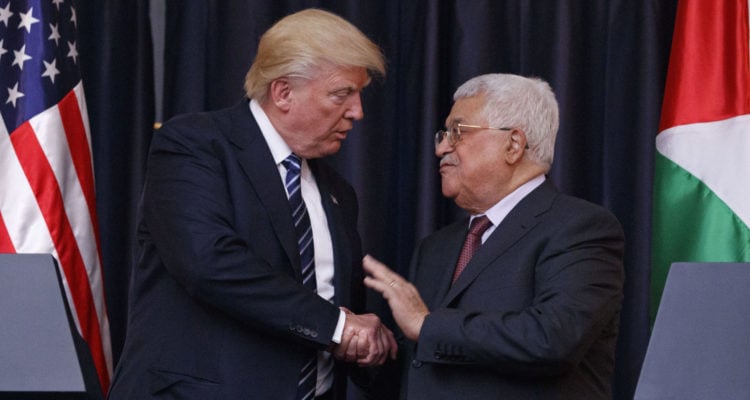Any final deal, financial or political, requires two sides giving and taking. Netanyahu and Trump certainly understand this reality.
By: Daniel Krygier
President Donald Trump’s recent tweet regarding the Arab-Israeli conflict has raised speculations regarding his vision for settling the conflict between Arabs and Jews.
“As an example, we pay the Palestinians hundred of millions of dollars a year and get no appreciation or respect. They don’t even want to negotiate a long overdue peace treaty with Israel. We have taken Jerusalem, the toughest part of the negotiation, off the table, but Israel, for that, would have had to pay more…,” the President tweeted.
The tweet consists of two main parts. It criticizes Palestinian Authority (PA) leader Mahmoud Abbas and his regime for receiving hundreds of millions of dollars each year from Washington without showing any appreciation or respect towards America. Second, in cryptic language, Trump says that Israel would have to pay more for having Jerusalem taken off the table.
Some Middle East commentators have referred to Trump’s business background and concluded that there will be no more free lunches in the Arab-Israeli peace talks. However, that is only partially true. As far as Israel is concerned, there were never any free lunches. Since its rebirth 70 years ago, Israel never got anything for free and frequently had to pay a heavy price for issues that most other countries take for granted, such as having its de facto capital recognized by the international community.
As long as Trump’s Arab-Israeli peace plan has not yet been unveiled, speculations will continue in rapid succession. However, the contours of Trump’s Middle East’s vision are gradually becoming visible. Israel will likely be asked to make extensive concessions for Trump’s recognition of Jerusalem as Israel’s capital. Since the demands will come from the first American president to officially recognize Israel’s capital, it will be exceedingly difficult for Prime Minister Benjamin Netanyahu and his conservative coalition partners to reject Washington’s requests. However, it is unlikely that Trump will demand more from Israel than did his predecessors.
Message to Ramallah is clear
Trump’s statement that Jerusalem has been taken off the table seems to contradict his earlier statement that Jerusalem’s final boundaries are subject to negotiations between the two parties. It could mean that Arab towns and villages in “East Jerusalem” will eventually be transferred to Ramallah’s jurisdiction, but the PA will not have a capital in any part of Jerusalem.
The message towards Ramallah is much clearer and indeed signals an end to the free lunches that Abbas and his regime have become accustomed to under previous US administrations. This was particularly true under former President Barack Obama, who frequently acted more like a spokesperson for Abbas than an impartial mediator. This created an untenable situation where Obama encouraged Abbas to reject negotiations with Israel and was constantly presenting unrealistic demands to Jerusalem. Trump’s infusion of harsh reality and reciprocity is a hard adjustment for Ramallah.
Any final deal, financial or political, requires two sides giving and taking. Netanyahu and Trump certainly understand this reality. The time has come for Abbas and his regime to return to planet Earth after decades of wasted Orwellian fantasies encouraged by irresponsible Western and Middle Eastern mediators.





